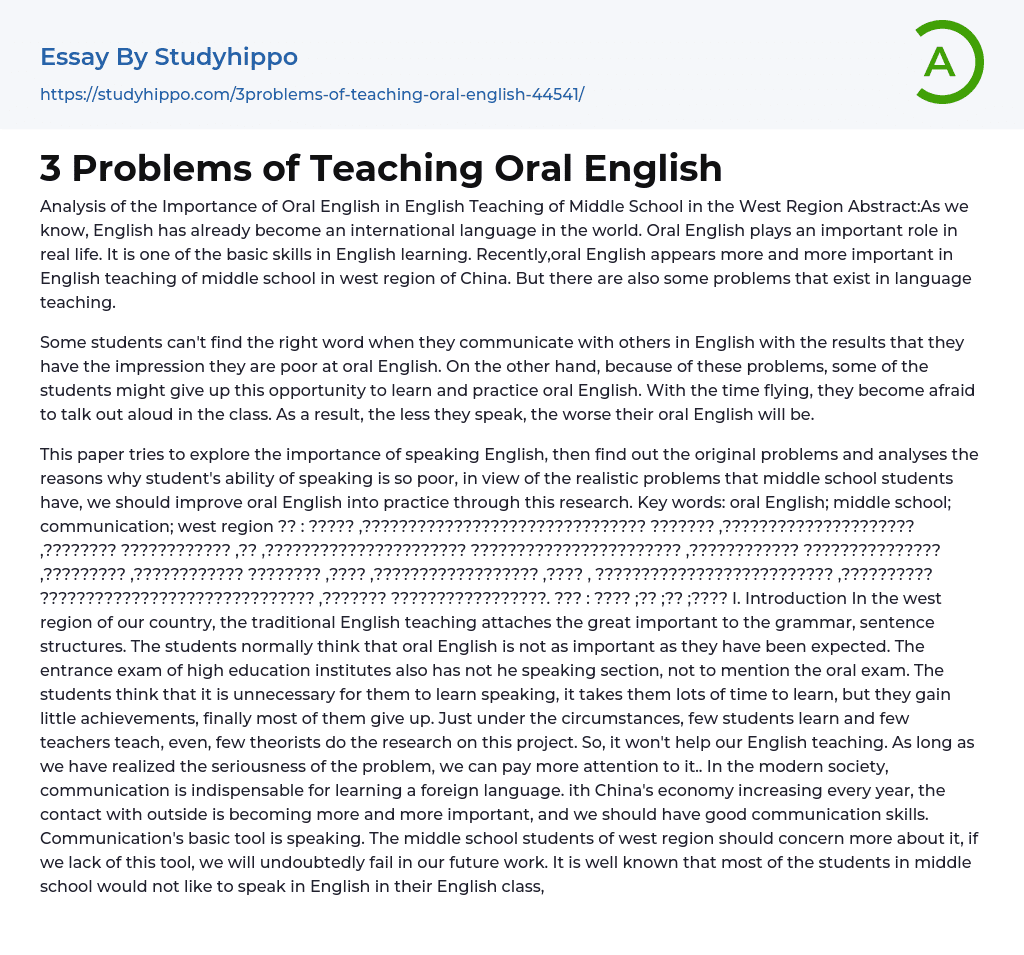Studies on the significance of oral English in English education at middle schools in the western region have indicated that it is a crucial ability that plays a significant part in real-life scenarios. However, despite acknowledging its importance, there are still challenges to address in language teaching.
Struggling to find the right words due to a lack of English speaking proficiency can lead students to believe their oral skills are insufficient. This belief often causes them to avoid practicing spoken English and eventually become fearful of speaking in class, hindering their progress in oral English proficiency.
This article aims to examine the importance of speaking English and address the underlying issues contributing to poor speaking abilities among students in the western region. Traditional English teaching in this area places a strong emphasis on grammar and sentence structures, causing students to view spoken E
...nglish as less important. Additionally, entrance exams for higher education institutions do not include a speaking section or oral examination, further reinforcing the belief that learning how to speak is unnecessary and time-consuming with minimal benefits. Consequently, many students abandon their efforts to improve their speaking skills. The lack of interest from students, teachers, and researchers in studying oral English impedes the effectiveness of English instruction. Recognizing the gravity of this problem allows us to prioritize it. In today's society where effective communication plays a crucial role in foreign language acquisition, China's thriving economy underscores the significance of proficient communication skills and engagement with the outside world. Speaking is fundamental for successful communication.
Enhancing this skill is exceptionally vital for middle school students in the western region as it can significantly impact their
future achievements. However, a considerable number of students within this age group tend to avoid participating in English class discussions due to perceiving it as challenging. I have personally encountered similar obstacles myself.

